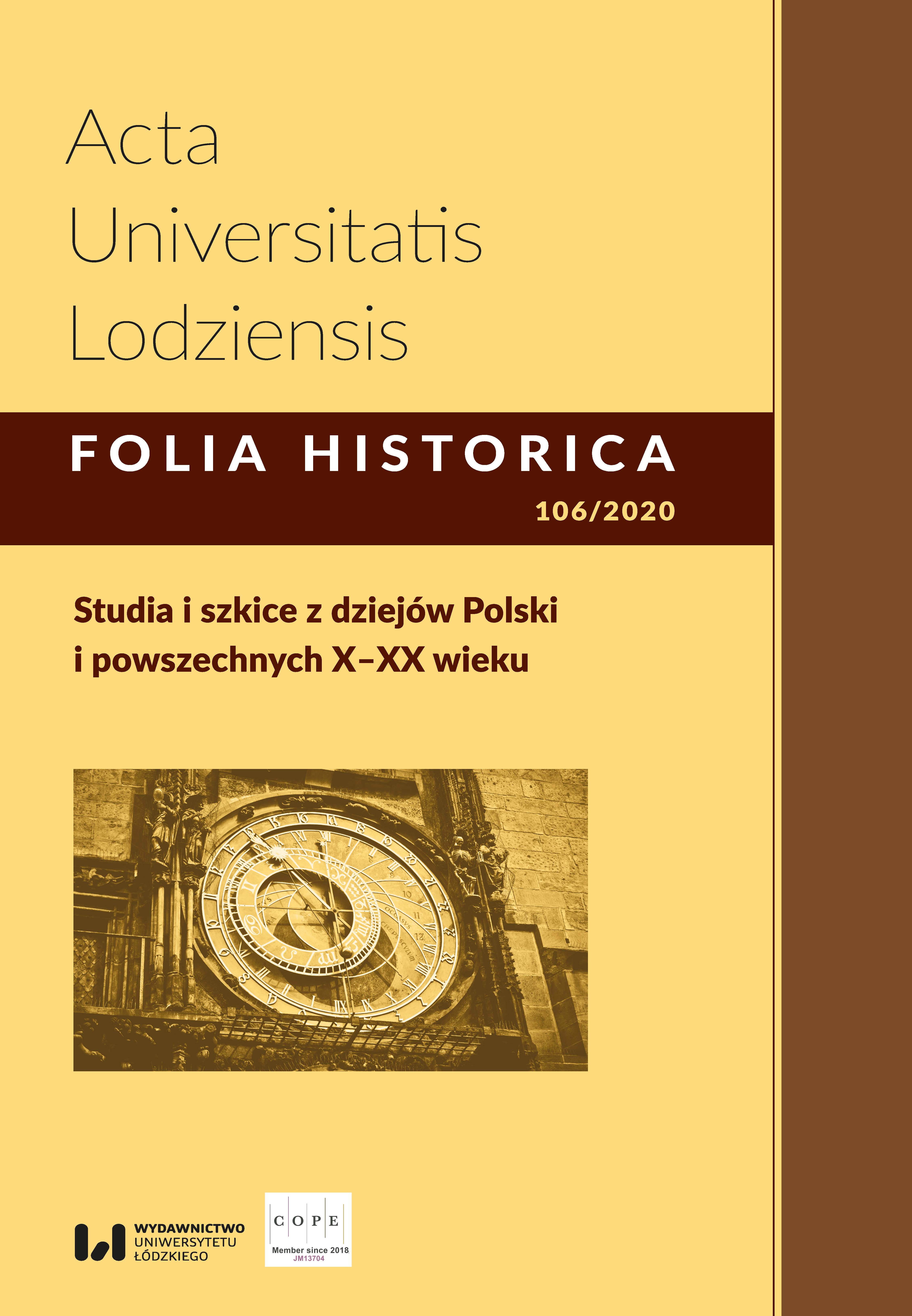The cult of the leader in the communist era: celebration of Mátyás Rákosi’s 60th birthday in Hungarian press
DOI:
https://doi.org/10.18778/0208-6050.106.10Keywords:
Mátyás Rákosi, cult of the leader, propaganda, communism, history of Hungary after World War IIAbstract
A cult of the leader was an element of the communist system in the Stalinist era. The symptom of that phenomenon was the celebration of the sixtieth birthday of Hungarian communist leader Mátyás Rákosi. The celebration and preparation were widely described in Hungarian press – one of the most important propaganda instrument – used by the communists to influence the society. The analysis of four daily papers indicates that regime’s aim was to strengthen the appropriate image of Rákosi. Furthermore, it was necessary to mobilize the workers to undertake birthday commitments to increase production and to execute the five-year plan. A huge number of press articles combined with their enthusiastic undertone were supposed to exert pressure on readers pushing them to enter a competition movement.
Downloads
References
Magyar Országos Levéltár [MOL], Magyar Dolgozók Pártja [MDP] 276. f., 65. cs., 388. őe.
Google Scholar
„Magyar Nemzet”, I–III 1952.
Google Scholar
„Népszava”, I–III 1952.
Google Scholar
„Szabad Ifjúság”, I–III 1952.
Google Scholar
„Szabad Nép”, I–III 1952.
Google Scholar
Apor B., Leader in the Making: The Role of Biographies in Constructing the Cult of Mátyás Rákosi, [w:] The Leader Cult in Communist Dictatorships. Stalin and the Eastern Bloc, eds B. Apor, J.C. Behrends, P. Jones, E.A. Rees, New York, s. 63–80.
Google Scholar
DOI: https://doi.org/10.1057/9780230518216_4
Apor B., Spatial Aspects of the Communist Leader Cult: The Case of Mátyás Rákosi in Hungary, [w:] The Sovietization of Eastern Europe. New Perspectives in the Postwar Period, eds B. Arpow, E.A. Rees, Washington 2008, s. 149–169.
Google Scholar
Apor B., The Invisible Shining. The Cult of Mátyás Rákosi in Stalinist Hungary, 1945–1956, Budapest–New York 2017.
Google Scholar
Bednarczyk M.J., „Cały kraj serdecznie wita swego pierwszego obywatela”. Przebieg obchodów 60. rocznicy urodzin Bolesława Bieruta na łamach „Trybuny Ludu”, „Universitatis Mariae Curie-Skłodowskiej. Sectio F” 2014, t. LXIX, z. 1–2, s. 49–74.
Google Scholar
DOI: https://doi.org/10.17951/f.2014.69.49
Buzinkay G., A magyar sajtó és újságírás története a kezdektől a rendszerváltásaig, Budapest 2016.
Google Scholar
Forró szeretettel készülnek az úttörők Rákosi elvtárs 60. születésnapjára, Budapest 1952.
Google Scholar
Hallás C., A nép művelése. Agitáció és propaganda a népművelésben a Rákosi-rendszer idején, Budapest 2013.
Google Scholar
Horváth A., A magyar sajtó története a szovjet típusú diktatúra idején, Budapest 2013.
Google Scholar
Iskolai ünnepély Rákosi Mátyás 60. születésnapja tiszteletére, Budapest 1952.
Google Scholar
Klimó Á. von, „A Very Modest Man”: Béla Illés, or How to Make a Career through the Leader Cult, [w:] The Leader Cult in Communist Dictatorships. Stalin and the Eastern Bloc, eds B. Apor, J.C. Behrends, P. Jones, E.A. Rees, New York 2004, s. 47–62.
Google Scholar
DOI: https://doi.org/10.1057/9780230518216_3
Leese D., The Cult of Personality and Symbolic Politics, [w:] The Oxford Handbook of the History of Communism, ed. S.A. Smith, Oxford 2017, s. 339–354.
Google Scholar
Lendvai P., Węgrzy. Tysiąc lat zwycięstw w klęskach, Kraków 2016.
Google Scholar
Magyar írók Rákosi Mátyásról, Budapest 1952.
Google Scholar
Nemes J., Rákosi Mátyás születésnapja, Budapest 1988.
Google Scholar
Népművészeink ajándékai Rákosi Mátyás 60. születésnapjára, ed. M. Bokor, Budapest 1952.
Google Scholar
Pünkösti Á., Rákosi a csúcson 1947–1953, Budapest 1996.
Google Scholar
Słownik biograficzny Europy Środkowo-Wschodniej XX wieku, red. W. Roszkowski, J. Kofman, Warszawa 2004.
Google Scholar
Downloads
Published
How to Cite
Issue
Section
License

This work is licensed under a Creative Commons Attribution-NonCommercial-NoDerivatives 4.0 International License.











